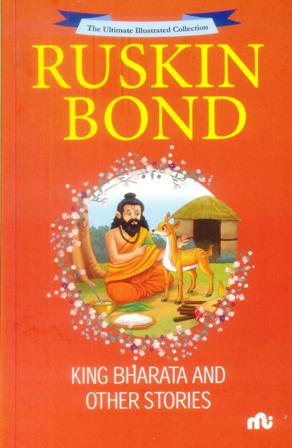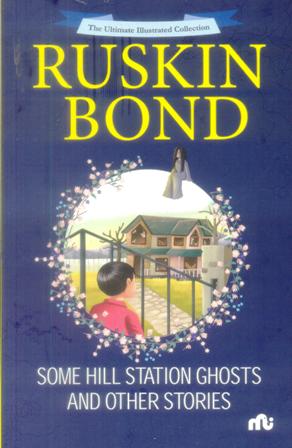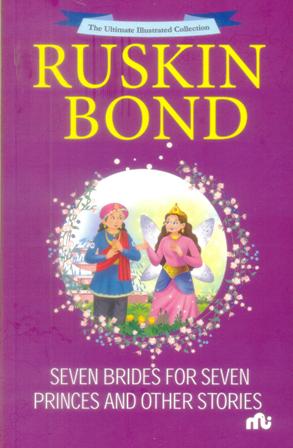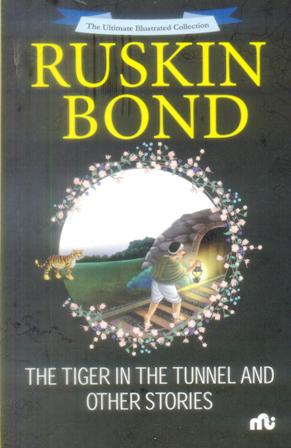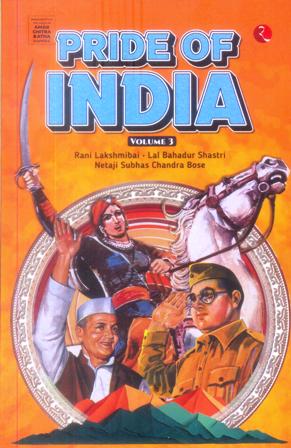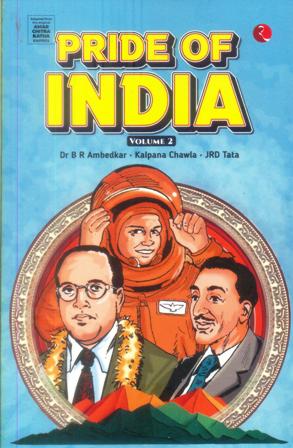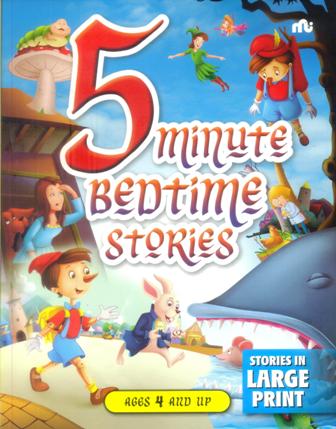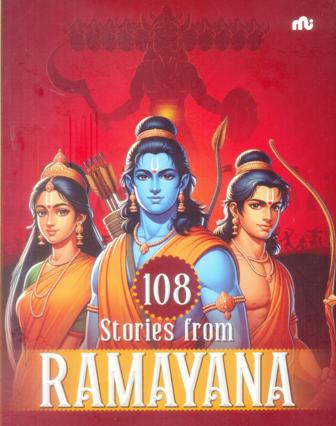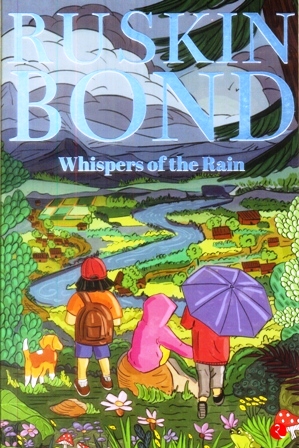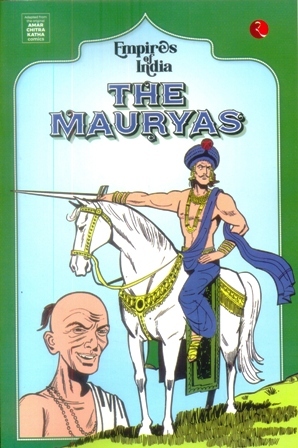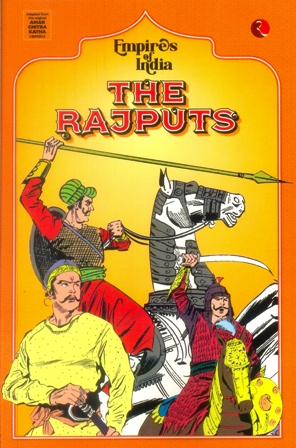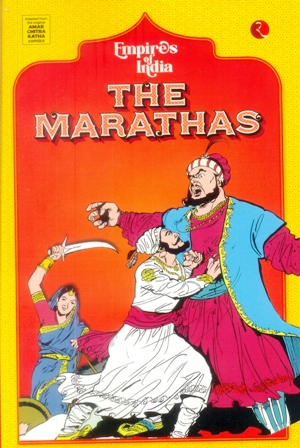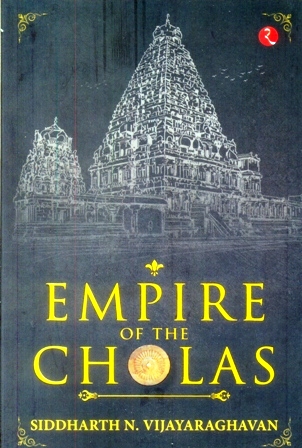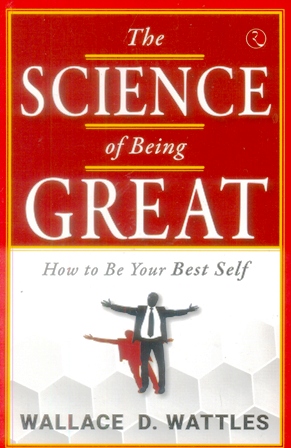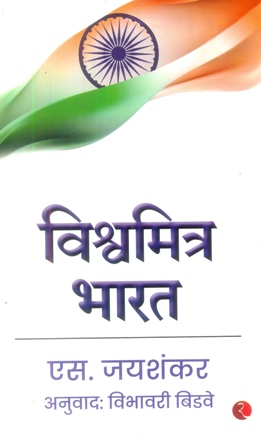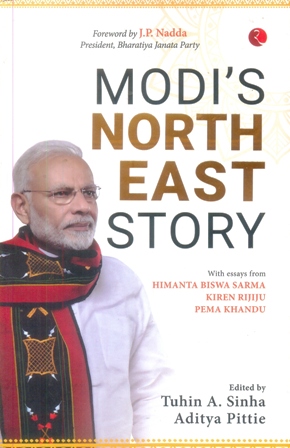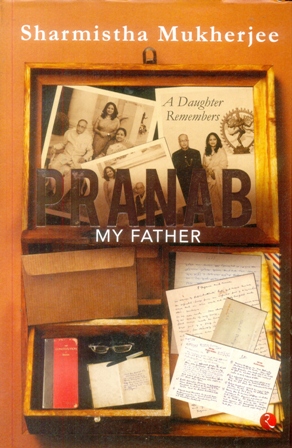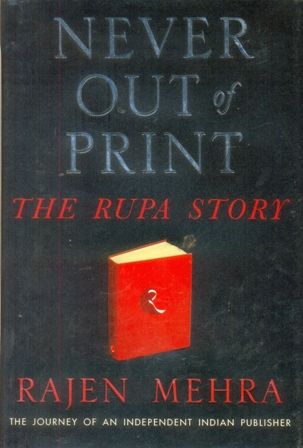-
King Bharata And Other Stories
This enchanting book, adorned with imaginative illustrations, contains a world of wonder for eager minds. This exquisite literary treasure invites young readers to take an unforgettable journey into the captivating world of Ruskin Bond's storytelling mastery. King Bharata and Other Stories compiles some of his most fascinating stories such as King Bharata, A Demon For Work, The Tiger-King's Gift, and A Battle of Wits, to take its readers on the adventure of a lifetime.
-
Some Hill Station Ghosts And Other Stories
This enchanting book, adorned with imaginative illustrations, contains a world of wonder for eager minds. This exquisite literary treasure invites young readers to take an unforgettable journey into the captivating world of Ruskin Bond's storytelling mastery. Some Hill Station Ghosts and Other Stories compiles some of his most fascinating stories such as The Photograph, Some Hill Station Ghosts, The Trouble with Jinns, and The Shadow on the Wall, to take its readers on the adventure of a lifetime.
-
Seven Brides For Seven Princes And Other Stories
This enchanting book, adorned with imaginative illustrations, contains a world of wonder for eager minds. This exquisite literary treasure invites young readers to take an unforgettable journey into the captivating world of Ruskin Bond's storytelling mastery. Seven Brides for Seven Princes and Other Stories compiles some of his most fascinating stories such as Nala and Damayanti, The Ugly Prince and the Heartless Princess, The Lost Ruby, and Seven Brides for Seven Princes, to take its readers on the adventure of a lifetime.
-
The Tiger in The Tunnel And Other Stories
This enchanting book, adorned with imaginative illustrations, contains a world of wonder for eager minds. This exquisite literary treasure invites young readers to take an unforgettable journey into the captivating world of Ruskin Bond's storytelling mastery. The Tiger in the Tunnel and Other Stories compiles some of his most fascinating stories such as The Great Train Journey, Dragon in the Tunnel, Going Home, and The Tiger in the Tunnel, to take its readers on the adventure of a lifetime.
-
Pride of India Vol 3
Rani Lakshmibai not only ruled Jhansi with courage and compassion, but also emerged as a national hero in the 1857 War of Indian Independence. Hers is the story of a young girl who broke gender barriers and journeyed to become a legendary warrior queen. Netaji Subhas Chandra Bose was a brilliant scholar, a charismatic youth leader and a brave freedom fighter. His revolutionary ideas created a mass awakening and stirred thousands to join the struggle for independence. The story of this patriot’s life is truly awe-inspiring. Lal Bahadur Shastri, the second Prime Minister of India, was a prominent leader of the freedom movement. A visionary, he was determined to build a new and self-reliant India. His story shows that any goal can be achieved by hard work and determination.
-
Pride of India Vol 2
From starting India’s first airline to overseeing the mammoth expansion of Tata Group, JRD Tata’s story showcases his passion and dedication, making him every entrepreneur’s role model. Kalpana Chawla’s quiet grit and determination showed everyone that the sky is not the limit if you set your mind to achieve something. Her story celebrates her unwavering desire to achieve her goal. As one of the architects of the Indian Constitution, Dr B R Ambedkar changed the political and social landscape of India by fighting against untouchability. His story shows us how education and a sense of purpose could truly transform one’s beliefs for the better. This book celebrates the journey of three highly inspirational individuals who achieved something truly extraordinary and went on to become the pride of India.
-
50 Worlds Greatest Stories
A collection of classic stories by literary titans, 50 World’s Greatest Stories is likely to be a treasure. Here you can find Anton Chekhov’s superb brevity, the emotional insights of Kate Chopin, and the creative wonders of Hans Christian Andersen. Indulge in the biting remarks of Guy de Maupassant, the sardonic humour of Saki, and the wit and sarcasm of O. Henry. Indulge also in the intrepid energy of Mark Twain, the eerie brilliance of Edgar Allan Poe, and the heartwarming stories of William Mackay. This extraordinary collection is completed with the profound contemplations of Ivan Turgenev and the intricate narratives of Katherine Mansfield. An indispensable component of every library's literature collection, 50 World’s Greatest Stories provides a fresh perspective on the human experience through each of its stories.
-
5 Minute Bedtime Stories
Introducing our enchanting collection, 'Five-minute Bedtime Stories,' where magic comes alive with every tale. Designed to whisk children and parents away to fantastical lands, this delightful compilation features hens that lay golden eggs, boys who never grow up, rabbits who worry about time, and wooden puppets that spring to life. From the simple charm of 'The Hen That Laid Golden Eggs' to the adventurous spirit of 'Peter Pan' and the whimsical journey of 'Alice in Wonderland,' this collection beautifully weaves timeless classics into your bedtime routine. These tales are more than just stories; they inspire dreams, convey valuable lessons, and create moments of joy and wonder. Snuggle up and let the magic of our bedtime stories lull you into fairy lands. The beautiful illustrations accompanying each tale will enchant children, making this book of tiny tales a treasure for bedtime. Psst! There's also a special bonus story included!
-
108 Stories From Ramayana
108 Stories from the Ramayana is not just a collection of legends; it is a treasure trove of rare narratives that hold the key to timeless values and insights crucial in today’s fast-paced world. These tales are windows to a world where righteousness triumphs over evil, love and duty guide actions, and even the smallest beings play crucial roles in grand adventures. This vibrantly illustrated book is a lucid narration that chronicles the heroism of Shri Rama, the testimonial loyalty of Lord Hanuman, the grit and devotion of Mata Sita and the profound wisdom of Jambavan.
-
Whispers of the Rain
‘In hot up-country towns in India, it is good to have the first monsoon showers arrive at night, while you are sleeping on the veranda. You wake up to the scent of wet earth and fallen neem leaves, and find that a hot and stuffy bungalow has been convened into a cool, damp place.’ As heavy monsoon winds begin to blow at the end of every summer, an entire country waits with bated breath. Once rain hits the parched land, the arid landscape slowly turns green. Humans, whistling thrushes, frogs, beetles and geckos—all rejoice. Whispers of the Rain is a collection of short stories that celebrates the ‘true spring’ of India—monsoon. Ruskin Bond’s descriptive, lucid and sensitive prose takes us through the dusty whirlwinds of the Gangetic plains, the whispering mists of Mussoorie and the thunderous Landour storms. This book welcomes you to embrace the fresh breeze of adventurous and rainy tales as seen through the master storyteller’s eyes.
-
The Mauryas
Empires of India: The Mauryas For over two centuries, the Indian subcontinent attracted empires like the Persians and Greeks, drawn by its wealth. During these times, Chanakya, a brilliant scholar and strategist, alongside Chandragupta Maurya, dreamed of a kingdom that could protect itself from outsiders. This dream started the Mauryan Empire, a powerful kingdom that covered a large area. Chanakya helped Chandragupta become a great leader, starting a dynasty that changed Indian history. Ashoka, another significant ruler, began as a tough leader but embraced Buddhism, promoting peace and kindness, and impacting Indian history. This book talks about how Chanakya and Chandragupta worked hard and made big sacrifices to build the Mauryan Empire. It looks at how their leadership continues to influence how people lead today. The stories show how their determination and smart thinking created an empire that people still remember.
-
The Rajputs
Empires of India: The Rajputs Around the fifteenth century, several Muslim rulers controlled regions in north, northwest and even central India. In the face of their relentless aggression, the battle to protect Hindu beliefs and way of living was an uphill task. It was during this time that sons from the Rajput clans refused to yield, leading to countless battles and lessons to future generations on leaving no stone unturned to uphold their honour. The kingdom of Mewar emerged as key in the resistance to Muslim rulers, with the Rajput dynasty there producing successors such as Maharana Kumbha, Maharana Sanga, and Maharana Pratap. They left an incredible legacy, with Maharana Kumbha remaining undefeated in every battle he ever fought and ensuring art and culture flourished under his reign. Maharana Sanga overcame difficult personal circumstances to finally become the first ruler who succeeded in uniting the Rajput clans to keep invaders at bay. Years down the line, when several Rajput leaders were forming alliances with the Mughal empire, Maharana Pratap valiantly countered them in epic battles such as the one in Haldighati. Apart from Mewar, an orphaned Chhattrasal from Bundelkhand drew inspiration from Chatrapati Shivaji and played a pivotal role in the Mughal empire’s downfall. In this book, delve deeper into the stories of these determined brave men and their tales of political and personal triumphs as they rewrote Indian history.
-
Empires of India: The Marathas
During the seventeenth century, the Mughal Empire dominated northern and central India, contending with endless battles against various kingdoms. During this tumultuous era, Shivaji was born with a profound sense of awareness and a fervent desire for independence. Determined to challenge Mughal supremacy, he rose to become Chhatrapati Shivaji, laying the foundations of the Maratha Empire. This new empire produced a lineage of formidable leaders whose valour continues to inspire. Among them was Baji Rao I, the warrior Peshwa who led his forces to victory in thirty-six battles. Ahilyabai Holkar, the steadfast queen, valiantly defended her realm through severe adversity, never retreating from conflict. Sambhaji, Shivaji’s son, remained a staunch supporter of his father, making crucial decisions to maintain their stance. This book tells the Maratha Empire’s ascent to power and its establishment as a formidable force in the region, detailing the heroic deeds and enduring legacy of its rulers.
-
Empire of the Cholas
South India. 11th Century In the middle of an undulating piece of land, a colossal structure emerges. It unites a land, creates harmony among a diverse population and even brings together lovers. This Big Temple breaks through the upper layers of the atmosphere in Thanjavur and transfixes the Chola Empire and its people. An ambitious man who comes adrift on a piece of wood; an Emperor who comes into his own greatness; the strong women of the court and beyond who assert their presence and authority—they all surround the construction of this Temple while facing the threat of a renegade foreign nation, which tries to take them all down. Empire of the Cholas narrates the legend of the construction of the Big Temple in Thanjavur and the Chola Empire. Weaving together the fictional and the factual, it creates a tapestry that promises to captivate and enthrall.
-
YAKSHINI
Halfway to the heavens, in a realm hidden by clouds, a divine beauty—a yakshini—is facing a sentence for her folly. Down on Earth, a couple in Maharashtra is expecting their seventh child and is performing a special yajna to fulfil their desires. By a strange quirk of fate, these two distinctly different lives are soon to be intertwined. Fifteen-year-old Meenakshi is no ordinary girl. Blessed with celestial attributes, she has beauty that would rival a goddess’, a unique communion with nature and a supernatural being living inside her. Even so, Meenakshi lives amongst men and eventually, the evil eye falls upon her. That’s when the yakshini inside her awakens. As the yakshini takes control, Meenakshi is catapulted into a world of passion and violence that even threatens her husband life. Neil d’silva’s yakshini is a toe-curling, spine-tingling tale where mythology comes deliciously alive on the page. With its fantastic creatures and unforgettable characters, the book highlights the tussle between the supernatural and the human, sure to enchant all readers.
-
Climate Chronicles Volume 2 : Turning Trash Into T
On a Journey of Sustainability! From the depths of recycling centres to the innovation hubs of renewable energy, delve into the intricate mechanisms shaping our planet’s sustainable future. With every chapter, unravel the compelling narratives behind recycling, renewable resources, and energy conservation. This part of Climate Chronicles doesn’t merely dwell on environmental challenges; it’s a rallying cry for change! Brimming with actionable advice and strategies, this book equips readers to embrace their roles as guardians of the environment and advocates for a brighter, eco-friendly tomorrow.
-
Climate Chronicles Volume 1-Why Is The Earth Feeli
Exploring Earth’s Epic Changes! From the polar ice caps to the bustling cities, explore the fascinating factors contributing to climate change. With each turn of the page, discover the surprising science that illuminates the complexities of our heating climate. This part of Climate Chronicles isn’t just about doom and gloom; it’s a call to action! Packed with practical solutions, this book empowers readers to become stewards of the Earth and champions for a cooler, greener future.
-
The Science of Being Great
In this classic guide, Wallace D. Wattles reveals the principles for achieving greatness in every aspect of life. Through concise teachings and practical insights, learn to harness the power of your mind, cultivate success habits and live a life of purpose and fulfillment. Whether you seek success in your career, relationships or personal growth, this book offers timeless wisdom and practical strategies to unlock your inner greatness.
-
Vishwamitra Bharat (विश्वामित्र भारत)
जागतिक क्रमवारीत उन्नत होण्याचा भारताचा प्रयत्न हा एक संतत प्रवास आहे. परंतु आपण केलेल्या प्रगतीचा आढावा घेत असताना आणि पुढील आव्हानांचा अंदाज घेत असताना, हा प्रवास प्रखर राष्ट्रीय बांधिलकी आणि आत्मविश्वासाने प्रेरित असणे ही गोष्ट खरेच खूप आश्वासक आहे. स्वतःच्या वारसा आणि संस्कृतीतून बळ मिळवणारा असो किंवा लोकशाही आणि तंत्रज्ञानाच्या आशेवर आव्हानांना सामोरा जाणारा असो, हा नक्कीच नवा भारत आहे. स्वतःचे हितसंबंध ठरवू शकणारा, स्वतःची भूमिका स्पष्ट करणारा, स्वतःचे उपाय स्वतः शोधू शकणारा आणि स्वतःचे मॉडेल पुढे नेणारा भारत. थोडक्यात एक असा भारत, जो अधिक भारत आहे.
-
First Loves, Last Loves
‘What I liked about her was her smile. It dropped over her face slowly, like sunshine moving over brown hills. She seemed to give out some of the glow that was in her face. I felt it pour over me. And this golden feeling did not pass when she left the room. That was how I knew she was going to mean something special to me.’ The heady rush of a first love, or the comforting dependability of a love spanning years—no matter the kind of love you experience—it is sure to have a lasting impact. Even years later, the thought of their tender touch, sheepish smile and their invigorating gaze can bring a smile on your face. First Loves, Last Loves is a heart-warming collection of stories that depict such love and passion. Ruskin Bond’s emotive and provocative prose is sure to tug at your heart with its simple yet profound intensity. These stories bring you an amalgamation of the heady romances of youth and the calm that envelopes romance with age and experience.
-
Modi's North East Story
India’s northeastern states bore the brunt of the horribly miscalculated 1962 war with China, which resulted in many problems. While losing territory to China was one of them, the deep-rooted emotional scars and alienation of the northeastern states due to repeated neglect by successive central governments was tougher to heal. After Prime Minister (PM) Atal Bihari Vajpayee, who had made an earnest attempt to bridge the divide between the Northeast and the rest of India during his tenure, PM Narendra Modi was the first to take the task of uplifting the Northeast with a rare visionary zeal with his Act East Policy. Ten years later, the results are all too visible.
-
Pranab My Father-A Daughter Remembers
The 13th President of India, who served as India’s External Affairs, Defence, Finance and Commerce Minister at different times; a Parliamentarian with the unique distinction of being the leader of both Houses; and a member of the Congress Working Committee for 23 years, Pranab Mukherjee was a scholar par excellence, powerful orator and one of India’s most towering statesmen. But to his daughter, Sharmistha Mukherjee, he was Baba, the workaholic; the history teacher who narrated events in the spirit of adda at dinner time; and the devoutly religious man who never imposed his faith on his daughter. In public and private, Pranab was always larger than life. In Pranab, My Father: A Daughter Remembers, Sharmistha offers a fascinating glimpse into the illustrious life of Pranab Mukherjee. She invites us into her family’s private world that was peopled by the Gandhis—Indira, Rajiv, Sonia and Rahul; Prime Ministers P.V. Narasimha Rao, Atal Behari Vajpayee, Dr Manmohan Singh and, more recently, Narendra Modi. She uncovers new, hitherto unknown facets of Pranab’s political life—his unfulfilled ambition of becoming India’s prime minister arising out of his inability to emerge as the ‘number one person’ to earn Sonia’s trust, the personality cult around the Nehru–Gandhi family, Rahul Gandhi’s lack of charisma and political understanding, Mamata Banerjee’s opposition to Pranab’s nomination as the presidential candidate (which sealed the deal in his favour) and his advice to PM Modi to acknowledge the contributions of Jawaharlal Nehru and Indira Gandhi.
-
Never Out Of Print-The Rupa Story
Rupa began on a Calcutta pavement in 1936, when D. Mehra, an impecunious but driven salesman, decided to try his hand at selling books. Within a generation, he had established Rupa as a major purveyor of imported books. Successive generations would make the firm the country's leading distributor of English-language trade books, representing some of the world's most important publishers, including Penguin, HarperCollins, Faber and many more. As the company grew, it began publishing its own titles. Legendary film-maker Satyajit Ray designed the publishing house's first colophon and became one of its earliest patrons. Other notables on the Rupa list included sportsmen like Sunil Gavaskar, whose memoir, Sunny Days, gave it one of its bestsellers; Chetan Bhagat, who would go on to become India's largest-selling author within a few years; and Ruskin Bond, the country's most beloved writer. Over the decades, as the Indian publishing milieu was reshaped by new entrants from around the world, Rupa continued to maintain its position as a fiercely independent publisher of important books, at the forefront of the Indian publishing scene.

